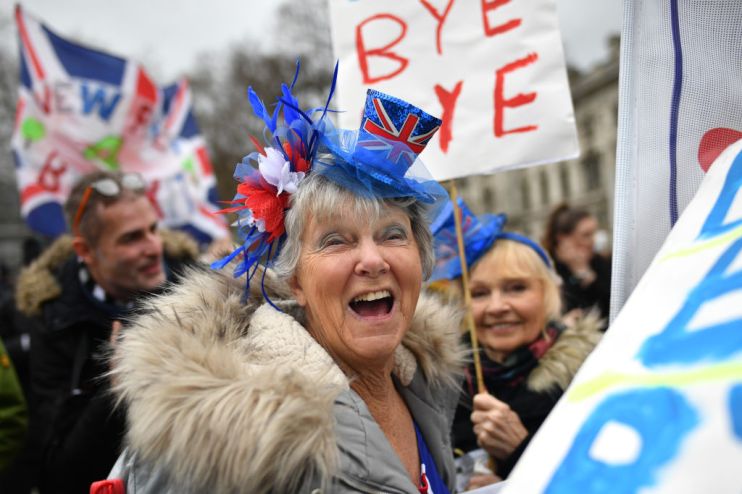How God guided Brexit: Anglicans mostly Brexiteers while Catholics are remainers

Faith played an important in the UK’s choice to leave Europe, with Anglicans more likely to back Brexit.
One in five Brits had religious beliefs that made them more likely to vote Leave and a quarter of voters’ faiths meant they were more likely Remain voters, according to a new study shared with City A.M.
Catholics, Presbyterians and regular churchgoers and those with the strongest religious beliefs were most likely to oppose Brexit.
Those are some of the findings in a new study into Christian religion and support for EU membership, outlined in a new book called Religion and Euroscepticism in Brexit Britain.
“Anglicans were very likely to vote leave,” said one of its authors, Brunel University’s Dr Stuart Fox, a behaviour expert, who co-wrote the book with Dr Ekaterina Kolpinskaya of the University of Exeter.
“A typical Catholic would vote to remain in the EU,” Fox told City A.M. “Catholics are used to the idea of a cross-national authority as in the Pope and the Vatican, so for them, the idea of being governed by an international body like the EU is quite normal.”
“Anglican history, meanwhile, is defined by trying to remain separate from the European superblock, and to do that you need a strong independent nation state. For them, anything that challenges it isn’t going to be something they’re a fan of,” she said.
While far from being the only thing that swayed the vote, religion did play a significant part in explaining why more Brits than expected voted Leave, Kolpinskaya added.
“Faith contributed to the rising Euroscepticism that pressed David Cameron to hold a referendum in the first place, and the stunning victory for Boris Johnson’s Conservative Party in the 2019 General Election,” she noted.
Upcoming local elections
Faith will also affect how people are likely to vote in the forthcoming local elections in May, pointing to evidence of a long-running change that saw Labour’s traditional support among Catholics collapse and virtually all Christian groups become more likely to vote Conservative.
“There is still a substantial ‘religious vote’ in British politics,” said Kolpinskaya. “Our study shows the nature of a religious vote changes, with formerly strong ties between Labour and Roman Catholics, for example, weakening.”
The Conservatives, by contrast, have consolidated much support among Christians by growing their Protestant vote and adding Catholics to it, she concluded.